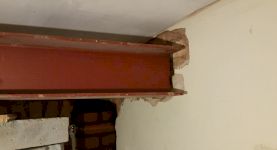Fire Alarm Installation Cost
- The average cost of fitting fire alarms is around £100.
- The job will take approximately 1 to 2 hours to complete.
- A complete pricing breakdown which includes different fire alarm types to choose from, along with what such a task usually involves.
- How long the job should approximately take and a general overview of what kind of jobs can be performed.
- How to find smoke alarm installers near you.
Want to discover the cost of fitting a fire alarm?
To get a fire alarm installed will usually cost around £100, but there are many cost factors that can change the overall cost, such as electrician prices, and the type you may need, such as interlinking smoke alarms.
Just need a quote for fire alarm installation?
MyJobQuote can help you. Enter a few project details and get responses from smoke alarm installers near you ready to offer you free, no obligation quotes!
Prefer to find out more first?
Our fire detector cost guide will tell you everything you need to know when installing a fire alarm.
Let's get started.

£100
Table of Contents
- How Much Does Smoke Detector Installation Cost?
- Installing Fire Alarm Prices
- Supply Only Costs
- Labour Costs and Timescales
- Cost Factors of Installing a Fire Alarm
- What's Involved in Installing a Fire Alarm?
- Choosing a Fire Alarm
- Building Regulation for Fire Alarms
- Cost of Removing a Fire Alarm
- Hiring Someone to Install a Fire Alarm Checklist
- FAQs
- Sources
How Much Does Smoke Detector Installation Cost?
The cost of installing a fire alarm is not that high. It mostly depends on the type of alarm and how many you need.
If you are just installing an extra battery-powered alarm, you can buy one for £10 to £15. They are easy to install. If you need to pay for installation, the cost will be £40 to £75.
Mains-powered alarms will cost you more as they need to be installed by an electrician. The average cost is £75 to £125. This cost is per alarm.
If you want a smart-enabled fire alarm, then this will cost you more. You can expect to pay £80 to £100 with installation for a battery-powered alarm. For a mains-powered smart alarm, the cost will range between £105 and £250.

Do I need a smoke alarm and a heat detector? I have a smoke alarm in the hallway, but no heat detector. Are they a legal requirement?
Installing Fire Alarm Prices
The price to install your fire alarms will depend on the type you choose and how many there are. The biggest difference comes from the way they are powered.
Battery Powered
Battery-operated alarms can be powered by standard batteries or ten-year batteries. Although ten-year battery alarms are pricier than standard batteries, they are still cheaper to have installed than mains-powered alarms.
| Type of Alarm | Cost per Alarm |
|---|---|
| Ionisation | £45 – £75 |
| Optical | £40 – £70 |
| Heat | £45 – £75 |
| Smart | £80 – £200 |
| Linked | £45 – £75 |
Mains-Powered
Mains-powered alarms are wired directly into your electrical system. They require regular testing and basic maintenance, and they must be fitted by an electrician. With a mains-powered alarm system, you have peace of mind that is always working.
| Type of Alarm | Cost per Alarm |
|---|---|
| Ionisation | £70 – £125 |
| Optical | £65 – £120 |
| Heat | £70 – £125 |
| Smart | £105 – £250 |
| Linked | £70 – £125 |
Supply Only Costs
Buying a fire alarm is usually pretty cheap. They are generally pretty cheap unless it is a more technical smart alarm.
| Type of Alarm | Cost |
|---|---|
| Mains-Powered | £10 – £20 |
| Battery Powered | £10 – £15 |
| Ionisation | £15 – £25 |
| Optical | £10 – £20 |
| Heat | £15 – £25 |
| Smart | £50 – £150 |
| Linked | £15 – £25 |
Labour Costs and Timescales
You can probably fit a battery-powered alarm yourself. However, if you don't feel confident, you can hire any tradesperson willing to do the job for you. They will probably charge you for no more than an hour of your time.
The cost will vary depending on where you are and the tradesperson you choose. A price of £30 to £50 would be reasonable. The job should take no more than 30 minutes.

Fitting a mains-powered alarm will require an electrician. Most will charge per alarm that needs to be fitted. Prices range between £55 to £100 per alarm.
You should expect the work to take a minimum of 1 to 2 hours, with an extra 30 minutes for each alarm after the first one.
Cost Factors of Installing a Fire Alarm

When calculating the price for fitting fire alarms in your home, there are a few factors to consider. For most homes, the alarm type does not affect the price too much. Costs are driven more by how many alarms you need, how they are powered and linked, and how easy the installation is.
Cost Factors
- Location of property — Your property's location will affect the installation cost, with London usually having the highest rates.
- Ease of access — If accessing your consumer box or running the wires is especially difficult, this may add to the cost. If you can't run the wires above the ceiling, you may need to pay extra to have the wires boxed in or just tacked into position along the ceiling.
- Number of fire alarms — The more alarms you have, the higher the supply costs will be. Most electricians will quote you an installation cost per alarm, so the more alarms there are, the higher the fitting cost.
I've just spotted a replace-by date on my smoke alarm. I've pressed the test button, and it still seems to work. Do I need to replace it or not?
What's Involved in Installing a Fire Alarm?

There is a big difference between installing a battery-powered alarm and a mains-powered alarm. Battery-powered smoke alarms are a quick and simple job since you only need to screw the alarms into place.
Fitting a mains-powered alarm is a job that should only be done by a qualified, registered electrician because this work connects to your mains electrical system and can be dangerous if not completed correctly. The steps below show what is typically involved in installing a fire alarm:
Installing A Battery Powered Alarm
- Decide where to place it — It should be away from any light fittings and bathroom doors.
- Fix the base — If it is a replaceable battery model, remove the cover and use screws to fix the base of the alarm to the ceiling.
- Fit the batteries — Pop in the batteries.
- Replace the cover — Put the cover back on.
Installing A Mains-Powered Alarm
- Your electrician will make sure there is a suitable supply — Either a dedicated slot on your consumer unit or a regularly used lighting circuit.
- Protection — If you use a dedicated slot it is typically protected at about 6A.
- Run and connect the cable — With the power off, the cable is run and connected at the consumer unit by your electrician.
- Route the wire — Depending on the location of the alarms and the consumer unit, the smoke alarm wire may be run above the ceiling, or it may have to be boxed in.
- Connect at the alarm — Next, the wire from the consumer unit is connected to the smoke alarm.
- Link the alarms if required — If your alarms are linked, then a second wire is connected at the same time, which will go to the next alarm in the chain.
- Fix the alarm and check connections — The smoke alarm is fixed to the ceiling with screws, and the connections are checked.
- Finish up — Finally, the cover is put back on. Your electrician will complete any required certification and advise on testing.
Choosing a Fire Alarm

When choosing the type of fire alarm you want, you need to think about how it works and the features it may have. Some alarms may have more than one of these features, while others only offer a single feature.
I'm buying a new smoke alarm, but my current alarm only lasted a couple of years. What types should I consider for a long-lasting alarm?
Ionisation Fire Alarm Cost
In an ionisation alarm, the air inside the alarm is ionised. This allows a current to flow. When smoke enters the alarm, it breaks the circuit and sets the alarms off. The average cost for this type of alarm is £20.
Pros
- ✔ Quick response to fast-flaming fires
- ✔ Less sensitive to cigarette smoke
Cons
- ✖ Can give false alarms if placed too near the kitchen
Optical Fire Alarm Cost
Optical alarms contain a light sensor and a red LED. Every few seconds, the light sensor checks how much light it can detect from the LED. The smoke from large fires scatters the light and sets the alarm off. The average cost for an optical alarm is £15.
Pros
- ✔ Works well near kitchens
- ✔ No radioactive material (simpler disposal)
Cons
- ✖ Does not work well in dusty places
- ✖ Bathroom steam can set them off
Smart Fire Alarm Cost
Smart alarms not only sound an alarm when they detect a fire, but they also send an alert to your phone. Depending on your chosen type, this may be via a message or by making your phone make an alarm sound. The average cost of a smart alarm is £100.
Pros
- ✔ Can alert you to a fire no matter where you are
- ✔ Makes it more likely you will hear the alarm
Cons
- ✖ You get what you pay for – some are better than others
Heat Fire Alarm Cost
Heat alarms are triggered when the air temperature gets higher. This means they are not prone to false alarms when you burn the toast. The average cost for a heat alarm is £20.
Pros
- ✔ Less susceptible to false alarms
- ✔ Can be placed directly in the kitchen or a garage
Cons
- ✖ Does not go off until a fire is established – can be a later alert to a problem
Linked Fire Alarm Cost
Linked alarms can be joined with or without wires. When any of the alarms in the system detects a problem, all of the linked alarms will go off. This is a good option for larger homes or homes with soundproofed rooms. The average cost of linked alarms is £20.
Pros
- ✔ The whole building is alerted if there is a problem
Cons
- ✖ Wireless ones can be a little unreliable
Building Regulation for Fire Alarms

- Building regulations require smoke/heat/fire alarms to meet current standards (BS 5839-6) and be interlinked. In new homes this is usually mains-powered with battery back-up, but sealed battery units are acceptable in some situations.
- If you have other work on your home that is subject to building regulations, your alarms may need to be brought up to current standards.
- If you want battery-powered alarms in addition to a mains-powered alarm, that is fine but they should be interlinked and provide the required coverage.
- Since electrical work in your home should be carried out by a Part P competent, registered electrician, this will also affect the installation of your alarms.
- Building regulations also cover placement. There must be at least one alarm in each circulating space, so one within each hallway of your home.
- This is the minimum requirement, but more alarms may be necessary to ensure you are fully covered and protected. If you are unsure, ask your local fire station.
Cost of Removing a Fire Alarm
If you are changing to a completely new system, you may want to remove the old one. The cost will depend on the type of alarm system you need to remove.
If the old alarms are battery-powered, removing them is very easy. All you need to do is unscrew them from the ceiling. Then, patch the holes. If you are concerned about your budget, this is a very simple job to DIY, and pretty much anyone should be able to do it.

If the old system was mains wired, you will be best off getting an electrician in to sort it out. The cost will depend on how much time they need to complete the work. Electricians usually charge £50 to £120 per hour, depending on where you are in the country. The more alarms there are to remove, the more it will cost.
There is no cost for disposing of old smoke alarms, as you can just take them to your local recycling centre or tip. They can be put in the specialist electronics disposal section, where they will be disposed of properly.
Hiring Someone to Install a Fire Alarm Checklist
When looking for someone to install a fire alarm system in your home, you have two options. You can either use a specialist fire safety company or use an electrician.

You might choose a specialist fire safety company if your home has a complicated or unusual layout and you are looking for a comprehensive fire safety risk assessment and plan.
Whichever type of specialist you choose, there are a few things to look out for.
- Experience – Make sure you choose someone with experience with the type of alarm you need.
- Part P registered – This means that they can self-certify any work they do on your electrics as being safe regarding building regulations.
- Reviews – Always check the online reviews of any tradesperson you are considering. It is a good way to get an idea of any potential problems that might arise.
FAQs
How often do you need to replace a fire alarm?
Can I get a free fire alarm?
There can be a long wait for a visit. So, if you can afford one yourself, it is a good idea to arrange for your own fire alarm.
What is the difference between a smoke alarm and a fire alarm?
A fire alarm may also describe a system of connected devices in your home rather than a single smoke alarm.
Do read any information carefully, as sometimes the terms "smoke alarm" and "fire alarm" are used interchangeably.
What is the cost of installing smoke alarms – UK?
For wired smoke alarms, you can expect to pay around £90, per alarm point. For the wired options, this extra cost includes the cost of installation.
What is the average fire alarm cost – UK?
Wired fire alarms price per point is on average £100. The average cost for app-enabled fire alarms is nearer £200. For these mains-powered options, the cost of installation is included.
Sources
https://www.westyorksfire.gov.uk/safety/smoke-alarms
https://www.fireangel.co.uk/products/?type=smoke
https://www.gov.uk/government/publications/fire-safety-approved-document-b










